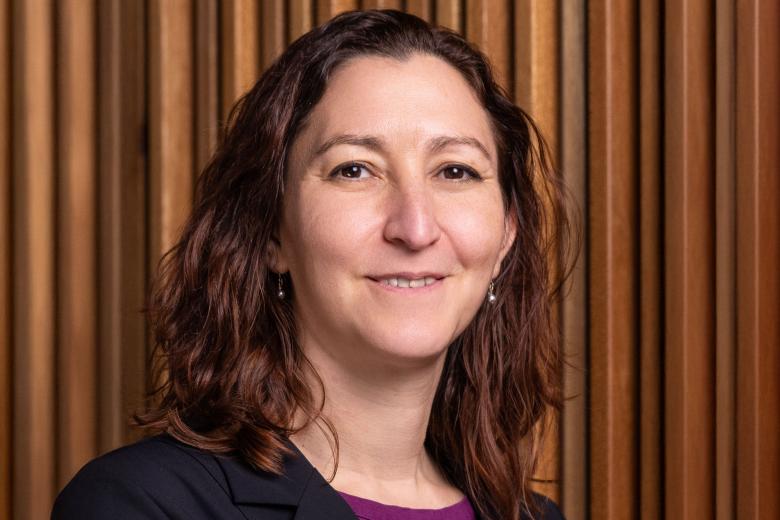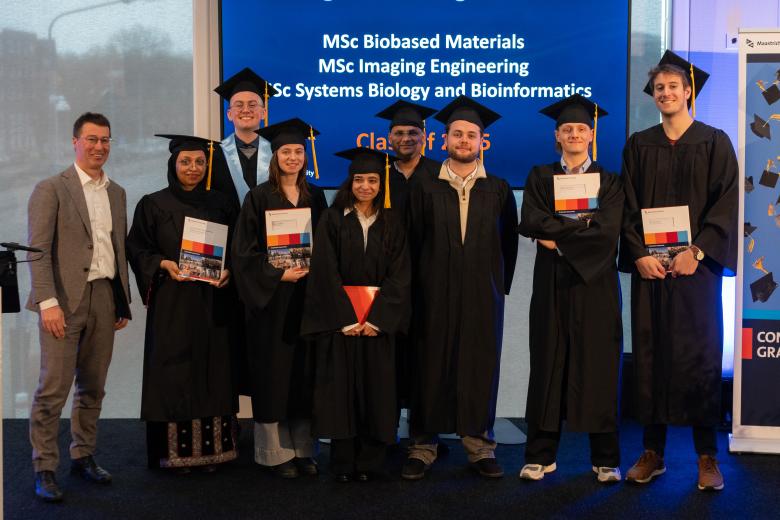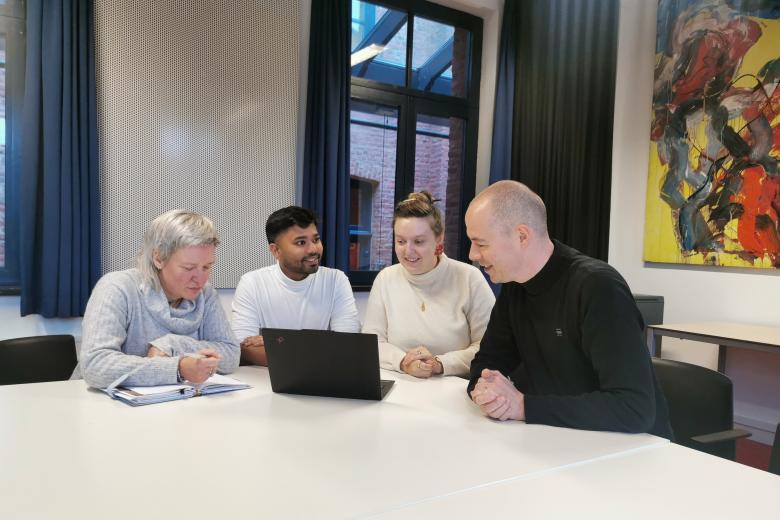Aachen-Maastricht Institute for Biobased Materials gets to work at Chemelot
The Aachen-Maastricht Institute for Biobased Materials (AMIBM) is getting started at the Brightlands Chemelot Campus. At an on-campus meeting on Wednesday 6 November, the initiators, Maastricht University (UM) and RWTH Aachen University, presented the professors who will be joining the AMIBM project team. It was also announced that the tender for the research equipment had been published. The partnership with the Fraunhofer Institute for Molecular Biology and Applied Ecology (Fraunhofer IME) in Aachen has also been developed further and the future research programmes have been detailed in a strategic plan.
In December 2011, UM and RWTH Aachen University announced their plans to establish the AMIBM. It will be the research hotspot on Brightlands Chemelot Campus for the production, acquisition, refinement and application of high-quality natural materials with new or improved properties, which will be extracted, processed and upgraded from plants or bacteria for medical and technological applications.
AMIBM project team
UM and RWTH Aachen University have appointed three so called ‘Drehkreuzprofessoren’ for AMIBM at Chemelot: Professor Rainer Fischer (Molecular Biotechnology), Professor Stefan Jockenhövel (Tissue Engineering & Textile Implants) and Professor Sanjay Rastogi (Polymer Physics). Together with their teams, they will be conducting unique research that adds to the research already taking place in Maastricht and Aachen. These professors can also bring companies at Chemelot into contact with relevant research partners in Aachen or Maastricht. This means that the campus provides direct access to the enormous supply of research capacity and facilities available at the two universities.
Unique research equipment
An installation will be built for the AMIBM research that can ‘spin’ biopolymers into fibres: polymers are placed in solution but are not melted as per the usual procedure, which often requires high temperatures that can damage the biopolymers. The machine can make bicomponent fibres, combining the properties of two materials into one single fibre. The installation can also coat the produced fibres to add new properties. The fibres are sprayed under ‘GMP conditions’ (General Medical Practice) to make them suitable for clinical applications, such as implants. The European tender for the purchase of this installation has recently been published; once a supplier has been selected, it will take about ten months before the machine is fully operational.
Fraunhofer IME
The partnership with RWTH Aachen University is organised through a number of its large institutes: the Institute of Textile Technology (ITA) and the Fraunhofer IME. The expertise of Fraunhofer IME is aimed at refining plants or bacteria that can produce high-quality biomaterials. They will also contribute to UM’s new Master of Science programme and will also play an active role in building a strong link with Greenport Venlo.
Kennis-As Limburg
AMIBM is one of the Kennis-As Limburg initiative projects. The research infrastructure and collaboration with the business world tie graduates to the region and create an attractive business climate for companies. The biobased products and processes that AMIBM develops will find applications in the medical, technical and consumer sectors, and thereby have great societal value. Finally, AMIBM will contribute to creating regional jobs: the ambition is to offer 66 fte of direct employment for knowledge workers in 2021.
Also read
-
Nava Tintarev takes a leading role in national computer science platforms
As of January 2026, Nava Tintarev, Professor of Explainable AI at Maastricht University’s Department of Advanced Computing Sciences (DACS), will join the boards of two of the Netherlands’ most prestigious computer science platforms.
-
Ron Heeren appointed fellow of the Netherlands Academy of Engineering
Professor Ron Heeren, distinguished university professor at Maastricht University (UM) and director of the Maastricht MultiModal Molecular Imaging Institute (M4i), was appointed as a fellow of the Netherlands Academy of Engineering (NAE) on Thursday 11 December.
-
UM builds open education and digital literacy into BKO/UTQ
Maastricht University is taking a practical step to support early-career teachers: open education and digital literacy will be built more firmly into the BKO/UTQ.